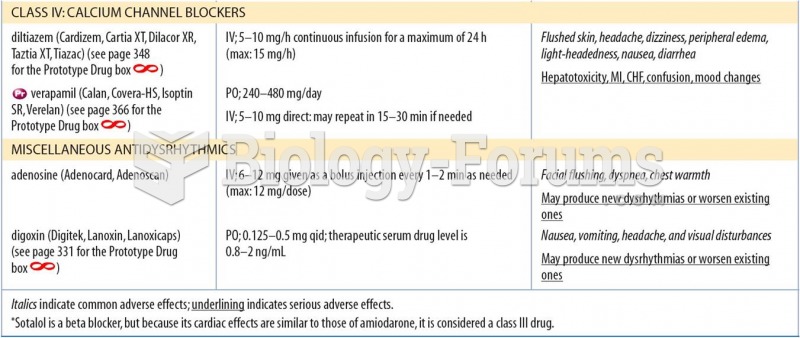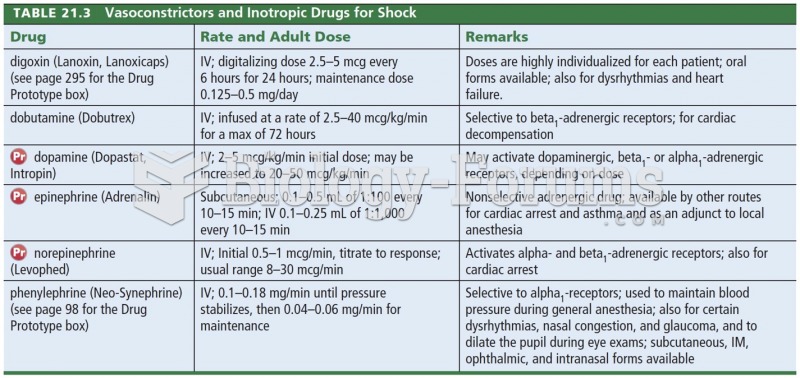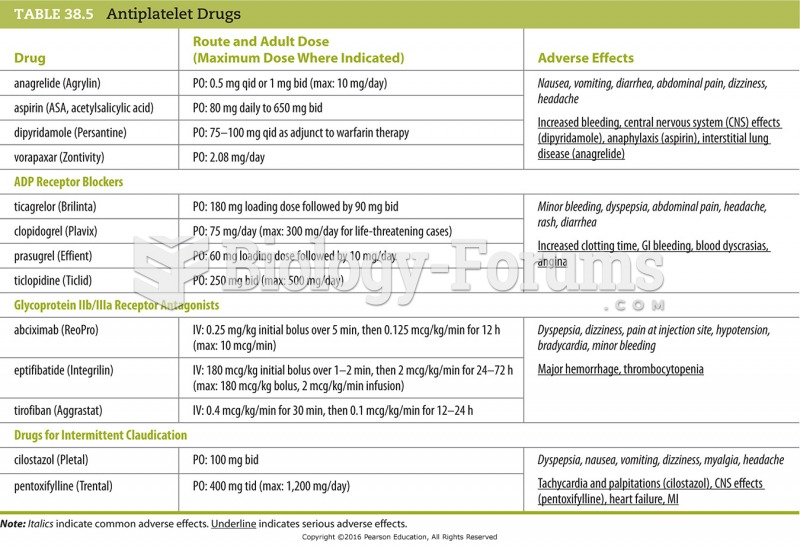|
|
|
There are 20 feet of blood vessels in each square inch of human skin.
All patients with hyperparathyroidism will develop osteoporosis. The parathyroid glands maintain blood calcium within the normal range. All patients with this disease will continue to lose calcium from their bones every day, and there is no way to prevent the development of osteoporosis as a result.
More than 2,500 barbiturates have been synthesized. At the height of their popularity, about 50 were marketed for human use.
Earwax has antimicrobial properties that reduce the viability of bacteria and fungus in the human ear.
Asthma attacks and symptoms usually get started by specific triggers (such as viruses, allergies, gases, and air particles). You should talk to your doctor about these triggers and find ways to avoid or get rid of them.







